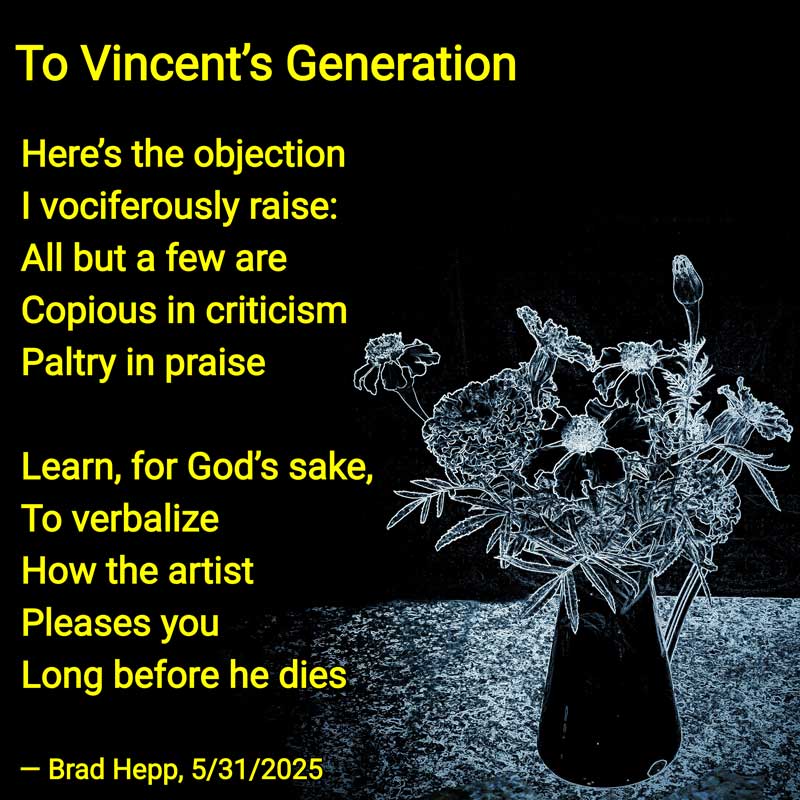(if you are viewing this via email, the website has a recording of this poem and commentary; click the title above)

Commentary
As a poet, I squeeze excess words out of sloppy speech. So my point is almost hypocritical: most of us need to EXPAND on our praise. Consider these scenarios:
The preacher crafts an insightful, well-structured, and persuasive sermon. All we can manage in response is “That was a good sermon.”
The painter captures subtle components of beauty, or depths of pain. We blurt out, “I like your picture.”
The novelist develops believable characters, who give us a mirror for our own unfinished selves. Our eloquent response: “That there’s some good writing.”
Why are we so inarticulate in our praise?
Several possibilities come to mind:
- We are lazy or selfish
- We don’t know much about the art form, and are afraid our ignorance will show (but we must manage appearances)
- We are afraid of expectations: the artist will be sorely disappointed if we don’t lavish praise on her next effort
- We are alert to ugliness, but unaware of beauty—when we say something’s good, it just barely cleared the threshold of our beauty detector
How can we do better? That’s not a rhetorical question.
5) The arts involved are frequently those where we have appreciation without facility. You and I are practiced in wordsmithing, so what winds up being our deepest expression of awe, wonder, overwhelmed-ness? “Words fail me.”
David, it’s hard to imagine words failing you! But even praising an artist with “Words fail me” would be far better than saying nothing.